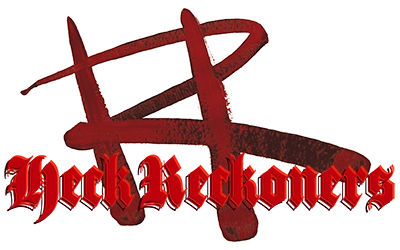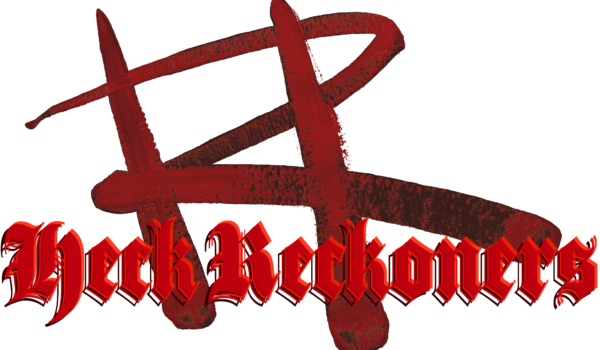Sometimes magic happens. A song enters your mind and slides out fully formed. “Check Out at the SRO” came to me this way. After watching the ending of a character on the underseen David Simon show The Deuce, I felt the itch of inspiration. It was late Monday on a weeknight, but I didn’t want to go to bed without getting the idea out of my head. I downed some caffeine, picked up my acoustic, and went to work. The chorus and the melody arrived fully formed and then the verses wrote themselves. I even chased the melody into a two-part verse structure that I probably wouldn’t have written myself if I came to the song through the music alone. Two hours later I was done. I had a demo on my phone, the world had a new song, and I had a caffeine buzz that meant I would be none too happy for my 6:00 AM wake-up.
It doesn’t always work this way. Bob Dylan, who early in his career wrote so fast he used a typewriter, said of “Tangled Up in Blue,” “It took ten years to live, and two years to write.” “Imaginary Friends” sat on my shelf for fifteen years. I thought the lyrics were trite and the progression repetitive. Curiously, once I blew the mothballs off it, I found the lyrics were fine, and the repetitive progression was its strength. All it needed was a new bridge and a couple flourishes – a new coat of paint. It has been in our setlists ever since.
Creating music is as close to magic as anything I know. If you’re a songwriter who keeps their antenna up and regularly learns new techniques, you’ll be amazed how the songs will pour out. You just have to give them the time and the space to do so.
But we’re not necessarily talking about songwriting today, we’re talking about arranging, recording, and production, for the real work of a song begins after the magic of its creation dissipates. This is when the work happens. After all, you play an instrument; you record at a workstation.
“Check Out at the SRO” is the only song I have misgivings about being on Touch Grass. I like the music and the lyrics (and certainly Kylee’s performance), but I’m concerned it doesn’t really fit with the rest of the album. I mean, it’s basically a folk song, and while that’s fine for Bob Dylan, it’s a genre I particularly care for, or regularly listen to. It’s certainly not how I would’ve preferred us to express ourselves.
Except it was the best way we could find to make the song work. The Deuce wrapped up in 2019, which means “SRO” predates the COVID pandemic. It’s been around for six years, and has probably been arranged as many times.
In 2019, I took my acoustic demo to FlowLines, the indie rock band that I was playing in at the time. We made it into a mid-tempo rocker, which took all the delicacy of the demo and flattened it into a…mid-tempo rocker.
In another iteration of the song, our band, a precursor to Heck Reckoners, stripped the song down to a bassline, a drum pulse, and washes of synthesizer. This was…fine. On the album, it would’ve made a nice change-up, but it felt sleepy instead of compelling, and the logistics of lugging around a synth to play exactly one song live would have driven me crazy.
For me, the breakthrough for the song – which made it interesting again – came when we incorporated a key change going into each new chorus. All of a sudden this static song had some musical thrust. We settled on an arrangement that incorporated both the acoustic folksiness of the demo with the full band sound of a mid-tempo rocker.
I still don’t love it.
French poet Paul Valéry said that “a poem is never finished, only abandoned.” And I feel that way about an album, which I’ve come to accept is not necessarily a water-tight masterwork, it’s a snapshot of a band during a specific time. Heck Reckoners formed in November of 2024. From then until Touch Grass’s release in January of 2025. We played and recorded these songs. We didn’t always know exactly what we were doing with them.
All this brings me to our Heck Record of the week, The Wrens’ Meadowlands. The Wrens were a indie rock band from New Jersey that had a moderate level of success recording punchy yet mysterious music that was indebted to Wire, R.E.M. and the Pixies. They recorded two albums in the 1990s (including the acclaimed Secaucus), fought with their label over the accessibility of their music (the same label would later make bank on Creed and Evanescence), and then…they got jobs, got married, got ordinary lives. And the dream kind’ve died.
And then, in 2003, seven years after Seacacus, they made a record with precisely that theme. Back in the early 2000s, seven years was an eternity. This was before long-gestating albums like My Blood Valentine’s MBV and D’Angelo’s Black Messiah proved that an artist could disappear for a half-decade or more and reappear with music that matched their earlier brilliance. For a ‘90s indie rock band, if you went seven years between records, it means you missed the decade.
Unlike MBV and Black Messiah, Meadowlands doesn’t pick up where their earlier albums left off. The Wrens of the 2000s are more wooly, gnomic, and long-winded than the slash-and-bash Wrens of the 1990s. Where their earlier songs gave you their best riff off the bat, something like “Happy” makes you wait until halfway through the song before the entire guitar melody comes into focus.
While the earlier Wrens gave you two parts buzzy rockers to every one part worn-out, ragged ballads, on Meadowlands, that ratio has flipped. And even the rockers sound enervated. The album’s most rousing chorus is the title of “This Boy is Exhausted.” This is music by people who have a lot on their plate, and not a lot of time to fuck around with their buddies in the basement recording indie rock.
The band’s most recognizable feature was Charles Bissell and Greg Whelan’s overlapping vocal harmonies – like two characters talking over each other in a Robert Altman film. They’re by turns complementary and antagonistic. (More on the antagonism later.) Their guitars circle each other, chiming, biting, driving, and in some cases, obliterating each other in walls of effects. That tremolo wash on “Happy”…happy? Yup.
The album’s gauzy production, which I believe was spearheaded by Bissell if subsequent music is to be believed, holds everything together. It’s somehow immaculately shaggy. The vocals are too low. The guitars are too hot. But it’s perfect. Everything is in the right place, even if the place is kind’ve messy.
Critics warmly welcomed Meadowlands in 2003, appreciating the new, mature direction of the band. And fans like me (or maybe just me) hoped it would be the beginning of a new era when the indie oldheads could give the what-for to the Broken Social Scenes and Arcade Fires of the world. That’s not what happened. In fact, nothing much happened. The band recorded a cover for a They Might Be Giants compilation, and donated a track to raise money for victims of Hurricane Katrina, and then…rumors, speculation, and broken promises. The follow-up to Meadowlands became indie rock’s Half-Life 3, vaporware either constantly on the verge of being released or deleted forever.
Album four’s delay was mostly due to the hesitancy of Bissell, who runs The Wren’s website, and details his struggles with “MH” (mental health), and his constant work in the studio. “I had lost perspective and didn’t know what was good anymore….” Bissell said of the time between the release of Secaucus and Meadowlands. It seems Album #4 fell into the same holding pattern.
By 2021, the rest of the band were fed up and The Wrens broke up. Whelan took his songs and the rest of the band’s members and released a self-titled album under the name Aeon Station. It was met with kind reviews, though critics mentioned that its straightforward rock production had none of the idiosyncratic touches that Bissell brought to The Wrens.
A couple months ago, a poster released the “The Wrens – Album 4.5 (2014 Demo)” on YouTube. Presumably they’re demos from a window when it looked like Meadowlands might have an actual follow-up. Though the 2014 demos are raw, as unmastered recordings tend to be, their production is winningly shambolic. Even in their unfinished state their brilliance shines through. Take one example: “In Paris to the Palestra” struggles to get started, all arrhythmic acoustic strums and keyboard (violin?) stabs, before snapping into focus after a minute and half. Fans and critics would’ve loved this album. Too bad.
There’s a part of me that feels an obligation to get songs right, especially when they seemingly appear out of the ether. But I’m a punk at heart, and that means I believe in practicality above all else. Heck Reckoners recorded “Check Out at the SRO” in the best way we could, in a timely manner, with the tools we had at our disposal. There’s a more perfect version of it out there, but I’m not going to let “perfect” get in the way of “good enough.” I hope you like “SRO.” I do. I just don’t love it.

